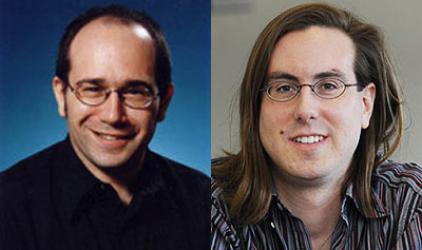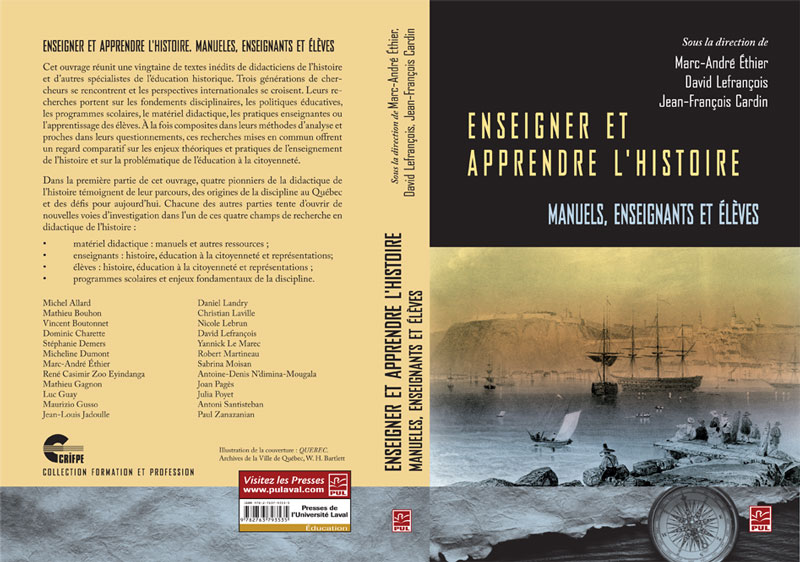Groupe de recherche sur l’éducation à la citoyenneté et l’enseignement de l’histoire (Marc-André Éthier and David Lefrançois)

Marc-André Éthier and David Lefrançois are researchers within the Groupe de recherche sur l’éducation à la citoyenneté et l’enseignement de l’histoire (GRECEH) and the Centre de recherche interuniversitaire sur la formation et la profession enseignante (CRIFPE) in Quebec.
Over the past four years, their research has revolved around four main thematic strands:
- Critical analysis of Québec history and citizenship programs at the elementary and secondary levels;
- The development of critical thinking in history;
- The transfer of learning to policy and community practice;
- Democratic deliberation in history classes and its problems.
More recently, they examined the contents and activities in one educational tool for students, the textbook, to see if they could be seen as presenting favourable or unfavourable conditions for learning sociohistorical and critical thinking.
They have presented some of their research findings to educators, co-facilitated professional development workshops for teachers, co-chaired seminars to bring together educational consultants, and co-edited two books which will be published this year:

Enseigner et apprendre l’histoire : manuels, enseignants et élèves (Teaching and Learning History: Textbooks, Teachers and Students). Québec: Presses de l’Université Laval.
Contenus et idées pour enseigner l’univers social au primaire (Topics and Ideas for Teaching Elementary Social Studies). Montréal: Éditions du Renouveau Pédagogique Inc.
They have written several popular articles which have been circulated in Canadian, Spanish, and French schools, among others, through widely available professional journals such as Vivre le primaire (Québec), Aula de Innovación Educativa (Spain), and Textes et documents pour la classe (France). Marc-André is a member of the Comité d’agrément des programmes de formation à l’enseignement (CAPFE) in Québec, Vice-president of the Canadian Society for the Study of Education, spokesperson for the Association québécoise pour la didactique de l’histoire et de la géographie (AQDHG) and Chair of the Département de didactique at the Université de Montréal. For the past decade, David’s work has been situated at the intersection of ethical and political philosophy, and social studies and social sciences education. He is interested in the convergence and divergence between Quebec’s secondary social studies program and The Historical Thinking Project. The Conseil supérieur de l’éducation du Québec recently nominated David to participate in the Commission on University Education and Research.

